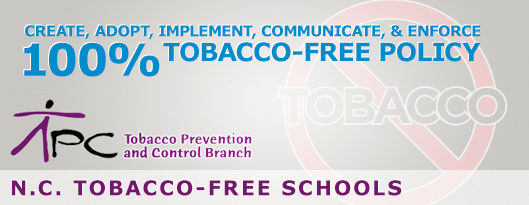Strategies for Enforcement
See also: Overall Strategies for Effective Policy Implementation
Engage Students
- Product Confiscation: The policy should include confiscation of tobacco products, including e-cigarettes and other vaping devices, without returning them. Here is some information on how to properly dispose of e-cigarettes.
- Parent/Guardian Notification: The policy should address parent/guardian notification procedures. The parent/guardian should be notified of all violations and the actions being taken by the school.
- Support: Nicotine addiction, also known as Tobacco Use Disorder (TUD), is a substance use disorder with short and long-term health consequences. Nicotine use in adolescents can harm parts of the brain that control focus, memory, attention and learning. Here are the key steps:
- Refer students to the guidance counselor, school nurse or other health or counseling services for all offenses for screening, information, counseling and referral.
- Mandatory Education Programs: We recommend all student violators attend an in-school alternative to suspension (ATS) program that provides education on the health risks of tobacco use, nicotine addiction and offers cessation options. One online program we recommend is ASPIRE, which is a bi-lingual, free program from the M.D. Anderson Cancer Center. Programs like ASPIRE help students understand their tobacco behaviors, the risks to their health, and the skills that can help them if they decide to quit smoking, vaping or using other tobacco products. ASPIRE will allow the school to follow a student’s progress through the program.
- School/Community Service: Some schools have used school or community service projects as part of the consequences of violating the tobacco-free policy. This alternative can include activities related to the tobacco violation, such as cleaning up school grounds of litter or providing tobacco education to younger students.
- Cessation: Research tells us that half of all young people who use tobacco want to quit. Offering cessation classes or helping link students who violate the policy to cessation programs will motivate students to quit and introduce skills and techniques they can use to accomplish this. It will also help students develop coping methods to prevent relapse. There are several programs that could help:
- QuitlineNC is a telephone-based cessation program that will also allow participating in online and text programs. It is free and has a special program for teens. Call 1-800-QuitNow (1-800-784-8669) 24/7.
- “This is Quitting” is a Text messaging program designed to help young people quit vaping allows anyone to text "“DITCHJUUL” to 88709, anonymously and free of charge. The Truth Initiative worked with young people who had either quit or were trying to quit, to make the program's messaging more effective.
- Become an Ex is an online quitting program that allows participants to learn their “triggers” and interact with other “quitters” online.
- Suspension: Suspension rarely helps student tobacco or nicotine addiction and may negatively impact their academic future. Ideally suspension would only be used after a student has had several prior violations or refused to participate in other measures. The school’s policy should include a suspension alternative. School districts should clearly outline conditions that will lead to suspension. Students and parents should be shown the steps of enforcement so that they understand the seriousness of this action. If suspension is deemed absolutely necessary, such as in the case of a repeat offender who refuses to participate in other options, then alternative forms of suspension such as in-school suspension are preferable to out-of-school suspension.
Engage Staff
- Educate and Support: Encourage staff to talk with their health professional regarding their tobacco use. Staff members who use tobacco products, including e-cigarettes, on campus are both violating a school policy and potentially promoting tobacco use to students. Tobacco use is an addiction disorder and staff who use tobacco may develop health problems as a result. It is strongly recommended that all staff violators be provided with information on the dangers of tobacco use and on cessation options available to them in the community and through QuitlineNC.
- Disciplinary Action: After the first offense, staff violations should be considered as insubordination, and subject to disciplinary action as they would be for any other school policy violation. Staff must be expected to adhere to the policy stipulations as outlined.
Engage Parents, Family Members and the Public
- Communication: Communication with the public should always focus on positive messages to enforce the policy. Enlist the support of family members and the public to gain compliance with the policy through ongoing communication of the policy and reminders that the policy covers all tobacco products, including e-cigarettes. Family members and the public should be reminded of the tobacco-free campus policy in the student handbooks and through reminder announcements at school events, newsletters and other communication channels.
- Progressive Enforcement: Sanctions should involve the following: a) request the individual to stop and refer to the school policy; b) if person refuses to stop, request that the individual leave the site of the school function and refer to normal school measures to handle the situation.


